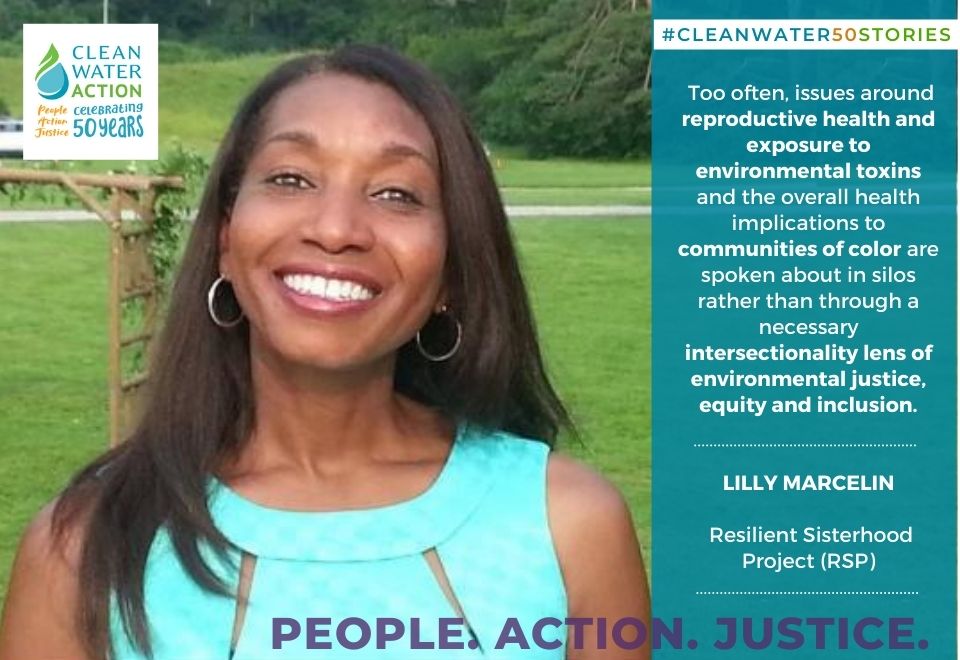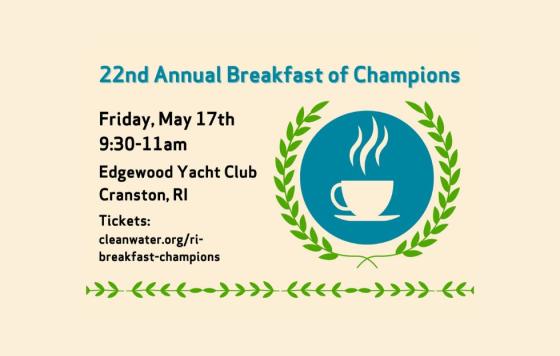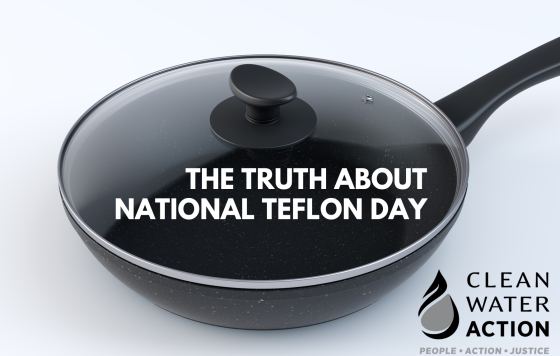
In honor of Clean Water Action's 50th birthday, we are lifting up voices and stories in the Clean Water movement through #CleanWater50Stories. Our story is the story of everyday people who have used their power to make a difference to create a healthier and greener future for all.
With this story, we also celebrate the 10th birthday of one of our core partners in the movement for environmental health and justice: Resilient Sisterhood Project (RSP). Lilly Marcelin founded the Boston, MA based RSP in 2012 in order to “educate and empower women of African descent regarding common but rarely discussed diseases of the reproductive system that disproportionately affect them. RSP approaches these diseases and associated issues through a cultural and social justice lens as it believes that poor knowledge of reproductive health is primarily related to health, racial, and socioeconomic disparities.”
When Lilly and Elizabeth Saunders, Clean Water Action’s Massachusetts director, met in 2014 at “Give Toxics the Boot” -- an event organized by Clean Water Action and the Professional Fire Fighters of Massachusetts to highlight the dangers of toxic flame retardants -- they both knew immediately that the two organizations would have a great partnership, and that continues to this day. Lilly is a persistent, hard working advocate for Black women’s health who weaves together art, science, and advocacy for positive change.
What’s one thing that RSP has accomplished that you’re most pleased about?
Of course, there are many things that I am proud of during the past 10 years. One of them is having a consistent message around the connections between reproductive health and exposure to environmental toxins and the overall health implications to communities of color. Too often, these issues are spoken about in silos rather than through a necessary intersectionality lens of environmental justice, equity and inclusion.
What’s one thing that RSP is working on or that is coming up in RSPs second decade that you’re most excited about?
We are currently working on many exciting things. We’ve have been working on an art program as a catalyst to draw attention to Black women’s reproductive health and modern gynecology. Our goal is to use art as experiential learning to unearth and reflect on the past and present.
The program examines the historic roles of business, medicine, science, and socio-political concepts of race and gender. In 2018, RSP commissioned three paintings to tell the story of three enslaved women from the 1840s—known only by their first names, Anarcha, Betsey, and Lucy. These women were the subjects of inhumane and unethical experiments by Dr. James Marion Sims of Montgomery, Alabama. In an era when anesthesia was beginning to be used for operations, Dr. Sims conducted multiple surgeries on these women without the benefit of pain reliever, with his stated excuse that Black people do not feel as much pain as white people. Dr. Sims is credited with having invented the vaginal speculum and a corrective method for vesico-vaginal fistula—a severe disability often caused by prolonged labor after childbirth, particularly among young women. Vesico-vaginal fistulas were a common problem for all women in the 19th century, but frequently were by-products of slavery due to repeated rapes and unspaced pregnancies demanded by slave owners.
In any event, we are excited to announce that we’ll be adding three new paintings to our current collection to continue to tell the story of these ancestors and inform people about the specific medical malfeasance perpetrated by Dr. Sims and to show how that fits into a larger and persistent historic pattern. The Hutchins Center at Harvard University is planning to host an art exhibition to feature all of the paintings this coming Fall of 2022. The projected opening ceremony date will be around the second or third week of October. The exhibition will be open to the public. We plan to post more information on our website over the summer.
What's your favorite story of your partnership with Clean Water Action?
Working with Clean Water Action has been a natural fit for RSP. One great memory was meeting Elizabeth Saunders a couple of years after I started RSP. It didn’t take a long time for us to become friends and create a meaningful partnership between Clean Water Action and RSP. The environmental expertise and overall working aspects of Clean Water Action inform a lot of our work to educate and share important information with the demographic we serve.
For learn more about RSP or to get involved, visit www.rsphealth.org.
To share your #CleanWater50Stories, visit www.cleanwater.org/50-stories.



